Life
Sign up for our newsletter
We summarize the week's scientific breakthroughs every Thursday.
-
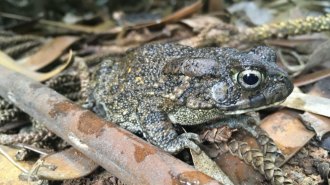 Animals
AnimalsGuttural toads shrank by a third after just 100 years on two islands
Introduced in the 1920s, toads on two islands in the Indian Ocean have shrunken limbs and bodies that may be evidence that "island dwarfism" can evolve quickly.
By Jake Buehler -
 Planetary Science
Planetary ScienceFarming on Mars will be a lot harder than ‘The Martian’ made it seem
Lab experiments developing and testing fake Martian dirt are proving just how difficult it would be to farm on the Red Planet.
-
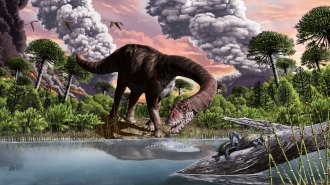 Paleontology
PaleontologyHow massive long-necked dinosaurs rose to rule the Jurassic herbivores
New dinosaur fossil dates to same time as a volcanic surge, suggesting ensuing changes in plant life allowed these long-necked giants to emerge.
-
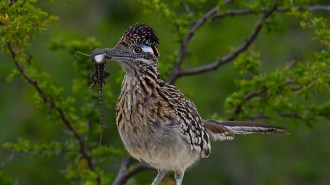 Animals
AnimalsHundreds of new genomes help fill the bird ‘tree of life’
More than 10,000 bird species live on Earth. Now, researchers are one step closer to understanding the evolution of all of this feathered diversity.
By Jake Buehler -
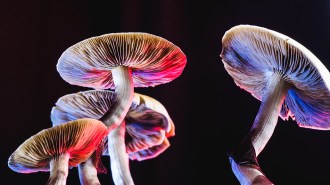 Neuroscience
NeurosciencePsilocybin may help treat depression, a small study finds
Researchers found that a compound in psychedelic mushrooms eased depression symptoms, but larger studies are needed.
-
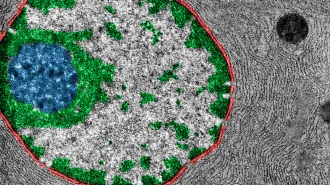 Genetics
GeneticsA key to the mystery of fast-evolving genes was found in ‘junk DNA’
A new study challenges a long-held belief that essential genes change little over time.
-
 Microbes
Microbes50 years ago, scientists suspected microbes flourished in clouds
In 1970, scientists presented early evidence that microbes in clouds may be alive and kicking.
-
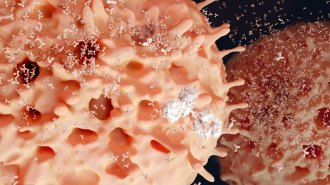 Health & Medicine
Health & MedicineProtecting the brain from infection may start with a gut reaction
In mice, immune cells in the meninges are trained to battle infections in the gut before migrating to the brain.
-
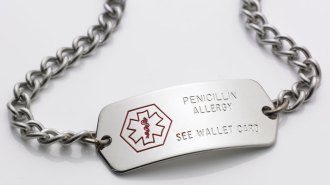 Genetics
GeneticsPenicillin allergies may be linked to one immune system gene
Researchers have located a shared hot spot — on the HLA-B gene — in the immune system in people who say they have penicillin allergies.
-
 Neuroscience
NeuroscienceFDA advisory panel declines to support a controversial Alzheimer’s treatment
The fate of an Alzheimer’s drug, developed by pharmaceutical company Biogen, remains up in the air.
-
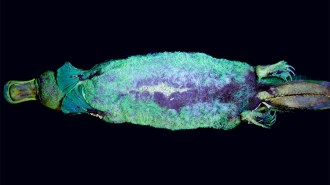 Animals
AnimalsA blue-green glow adds to platypuses’ long list of bizarre features
The discovery of platypuses’ fluorescent fur has researchers wondering if the trait is more widespread among mammals than anyone has realized.
-
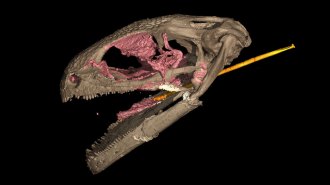 Life
LifeAn ancient amphibian is the oldest known animal with a slingshot tongue
A tiny amphibian that lived 99 million years ago waited for invertebrate prey before snatching them with a swift, shooting tongue.